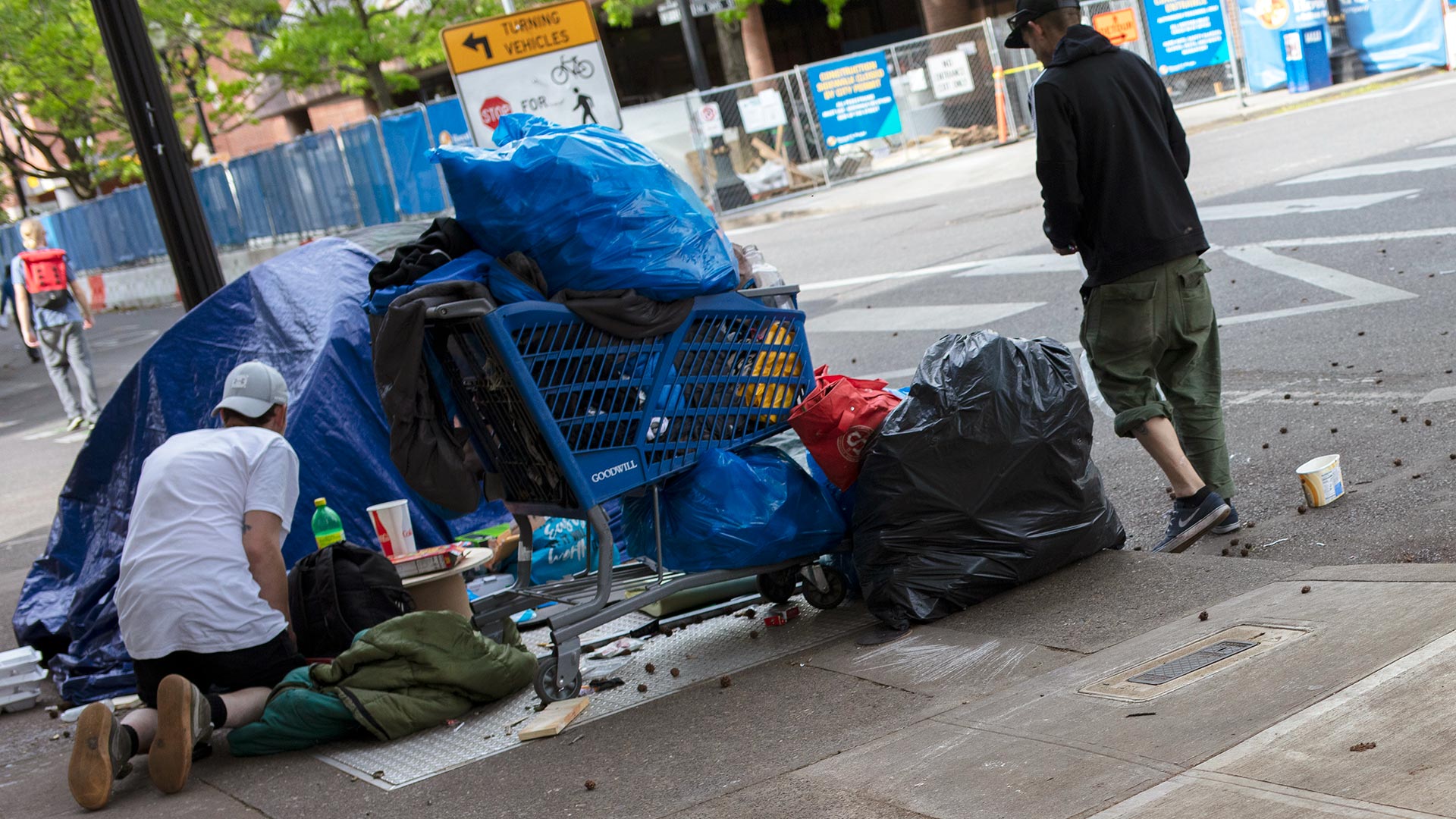[ad_1]

In Portland’s Old Town neighborhood, an area rife with drug use, the Portland Police Bureau is launching a new pilot program to help those battling drug addiction.
The initiative, which began on December 13, seeks to break the cycle of addiction by introducing people to on-the-spot service providers who can guide them toward recovery.
Officer David Baer, part of the Central Precinct Bike Squad, said the program aims to reach individuals on the streets by initiating connections with service providers.
“We’re trying to kind of break that cycle now by just starting to introduce people to service providers who can come out on the street that moment, hopefully, make those connections and convince people to go into recovery,” said Officer David Baer.
The program is a departure from previous measures, such as issuing fines and providing contact information for treatment under Measure 110.
Joe Bazeghi and his team at Recovery Works Northwest are key players in this collaborative effort.
When individuals express a willingness to seek help, they are connected with peer support specialists from organizations like the Mental Health and Addiction Association of Oregon and Northwest Instituto Latino.
Recovery Works Northwest provides detox treatment and services, all funded by Oregon’s Measure 110.
“The window of openness to recovery is short, and it closes quickly, so being able to meet people where they’re at when they’re ready leads to roads of long-term wellness and recovery,” explained Bazeghi.
On the program’s first day, 67 people engaged in public drug usage were approached, and 17 accepted immediate help from social workers. Bike officers also intervened in a severe overdose, administering three doses of Narcan, with outreach workers subsequently offering recovery services.
“If we find you using drugs in public, we issue a citation and hand out the drug screening card for Measure 110. Today also included asking folks if they wanted help from a social worker right now in the moment,” Baer explained.
The collaboration extends beyond law enforcement, involving state troopers to enhance the project’s reach. However, challenges remain, with the need for additional staff and more detox beds highlighted during the pilot phase.
Meanwhile, Portland faces broader issues, prompting the formation of the Portland Central City Task Force led by Governor Tina Kotek.
Recommendations presented at the Oregon Leadership Summit include a call for increased police presence, tax breaks for businesses and a ban on public drug use.
Meanwhile, Portland Mayor Ted Wheeler stressed the importance of collaboration, acknowledging that Portland’s success or failure has statewide implications.
We all want the same thing,” Wheeler said. “We want this city and this state to recover, and the only way we can do it successfully is through collaboration. We have to work together because nobody individually holds the key to success.”
Wheeler, who is also the city’s police commissioner, had unsuccessfully tried to ban public drug use earlier this year.
The task force’s recommendations encompass a range of strategies, from addressing immediate concerns like cleaning up trash to long-term solutions such as building 20,000 homes in downtown Portland by 2035.
Notable proposals include declaring a 90-day fentanyl emergency, expanding daytime services for the homeless, and adding shelter beds.
Additionally, the task force advocates for a three-year moratorium on new local fees and taxes, accompanied by targeted tax breaks to support businesses.
[ad_2]




